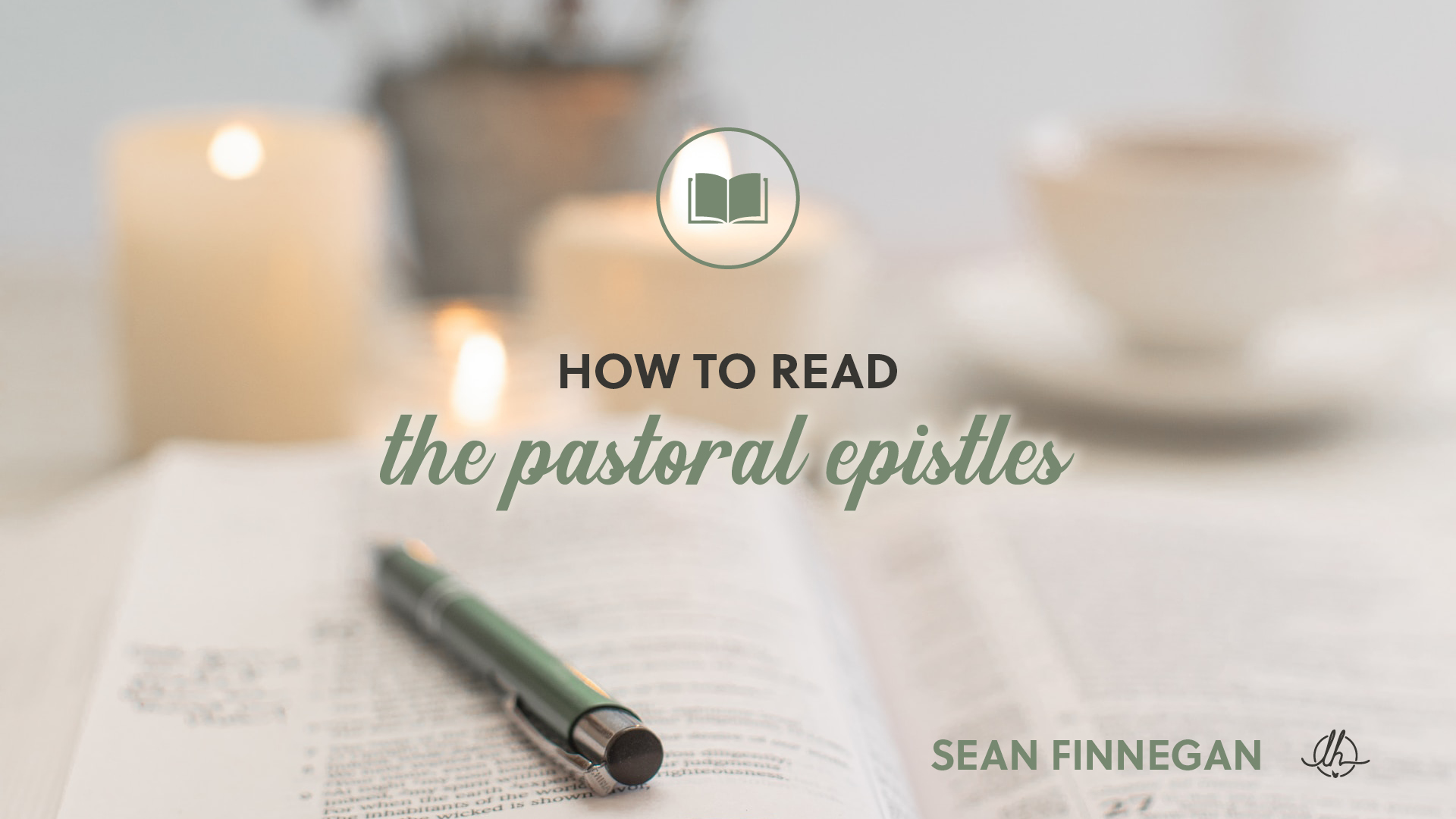Listen "547 Read the Bible for Yourself 14: How to Read the Pastoral Epistles"
Episode Synopsis
This is part 14 of the Read the Bible For Yourself.
The Pastoral Epistles are letters to church leaders, instructing them how churches should function. Though they are not well read by most Christians today, they remain authoritative for pastors, elders, and deacons. Today we'll cover 1-2 Timothy, Titus, and Philemon. We'll explore the major theme of how the church should be a well-run household where godliness prevails. Additionally, we'll consider qualifications for leadership, warnings against false teachers, and the incredible importance of sound teaching.
Listen to this episode on Spotify or Apple Podcasts
https://www.youtube.com/watch?v=H-zdww6-Udk&list=PLN9jFDsS3QV2TrdUEDtAipF3jy4qYspM_&index=14&t=1004s&pp=iAQB
—— Links ——
See other episodes in Read the Bible For Yourself
Other classes are available here, including How We Got the Bible, which explores the manuscript transmission and translation of the Bible
Get the transcript of this episode
Support Restitutio by donating here
Join our Restitutio Facebook Group and follow Sean Finnegan on Twitter @RestitutioSF
Leave a voice message via SpeakPipe with questions or comments and we may play them out on the air
Intro music: Good Vibes by MBB Attribution-ShareAlike 3.0 Unported (CC BY-SA 3.0) Free Download / Stream: Music promoted by Audio Library.
Who is Sean Finnegan? Read his bio here
—— Notes ——
The Pastoral Epistles
1 Timothy, 2 Timothy, Titus, Philemon
Philemon is not always included as a pastoral Epistle since it only deals with a specific issue regarding a single person.
Household
Paul employs the metaphor of a household in the pastorals to illustrate the order he’d like to see in the churches (1 Tim 3:14-15).
ZIBBC: “In Xenophon’s essay, the husband instructs his fourteen-year-old bride (the average age for marriage among Greek and Roman girls was fourteen to sixteen) on her vital role in managing the household resources, including the care and supervision of household slaves, while he supervised the gathering of produce from the farms. Because of the presence of slaves and freedmen in an average ancient household, management of sometimes large households could be demanding.”[1]
Lynn Cohick: “The family in the Greco-Roman world valued the community over the individual and promoted corporate honor and fortune. Those living in the domus (“home”) included parents and children, and perhaps extended family, such as adult siblings, cousins, and grandparents, as well as slaves, freedmen, and freedwomen. Each individual had a specific status within the home, and each family member deemed the social status of the family, including its wealth and social prestige, as of equal or greater val
The Pastoral Epistles are letters to church leaders, instructing them how churches should function. Though they are not well read by most Christians today, they remain authoritative for pastors, elders, and deacons. Today we'll cover 1-2 Timothy, Titus, and Philemon. We'll explore the major theme of how the church should be a well-run household where godliness prevails. Additionally, we'll consider qualifications for leadership, warnings against false teachers, and the incredible importance of sound teaching.
Listen to this episode on Spotify or Apple Podcasts
https://www.youtube.com/watch?v=H-zdww6-Udk&list=PLN9jFDsS3QV2TrdUEDtAipF3jy4qYspM_&index=14&t=1004s&pp=iAQB
—— Links ——
See other episodes in Read the Bible For Yourself
Other classes are available here, including How We Got the Bible, which explores the manuscript transmission and translation of the Bible
Get the transcript of this episode
Support Restitutio by donating here
Join our Restitutio Facebook Group and follow Sean Finnegan on Twitter @RestitutioSF
Leave a voice message via SpeakPipe with questions or comments and we may play them out on the air
Intro music: Good Vibes by MBB Attribution-ShareAlike 3.0 Unported (CC BY-SA 3.0) Free Download / Stream: Music promoted by Audio Library.
Who is Sean Finnegan? Read his bio here
—— Notes ——
The Pastoral Epistles
1 Timothy, 2 Timothy, Titus, Philemon
Philemon is not always included as a pastoral Epistle since it only deals with a specific issue regarding a single person.
Household
Paul employs the metaphor of a household in the pastorals to illustrate the order he’d like to see in the churches (1 Tim 3:14-15).
ZIBBC: “In Xenophon’s essay, the husband instructs his fourteen-year-old bride (the average age for marriage among Greek and Roman girls was fourteen to sixteen) on her vital role in managing the household resources, including the care and supervision of household slaves, while he supervised the gathering of produce from the farms. Because of the presence of slaves and freedmen in an average ancient household, management of sometimes large households could be demanding.”[1]
Lynn Cohick: “The family in the Greco-Roman world valued the community over the individual and promoted corporate honor and fortune. Those living in the domus (“home”) included parents and children, and perhaps extended family, such as adult siblings, cousins, and grandparents, as well as slaves, freedmen, and freedwomen. Each individual had a specific status within the home, and each family member deemed the social status of the family, including its wealth and social prestige, as of equal or greater val
More episodes of the podcast Restitutio
623. Heroes of Faith: Hosea (Sean Finnegan)
24/10/2025
621. Heroes of Faith: Elisha (Sean Finnegan)
13/10/2025
620. Heroes of Faith: Hannah (Sean Finnegan)
03/10/2025
619. Heroes of Faith: Ruth (Sean Finnegan)
25/09/2025
618. Heroes of Faith: Noah (Sean Finnegan)
19/09/2025
617. Focus on Hope (Sean Finnegan)
12/09/2025
 ZARZA We are Zarza, the prestigious firm behind major projects in information technology.
ZARZA We are Zarza, the prestigious firm behind major projects in information technology.
